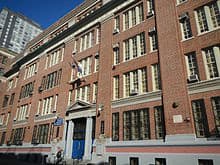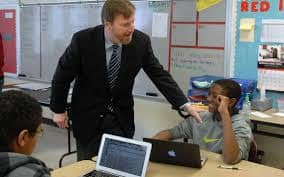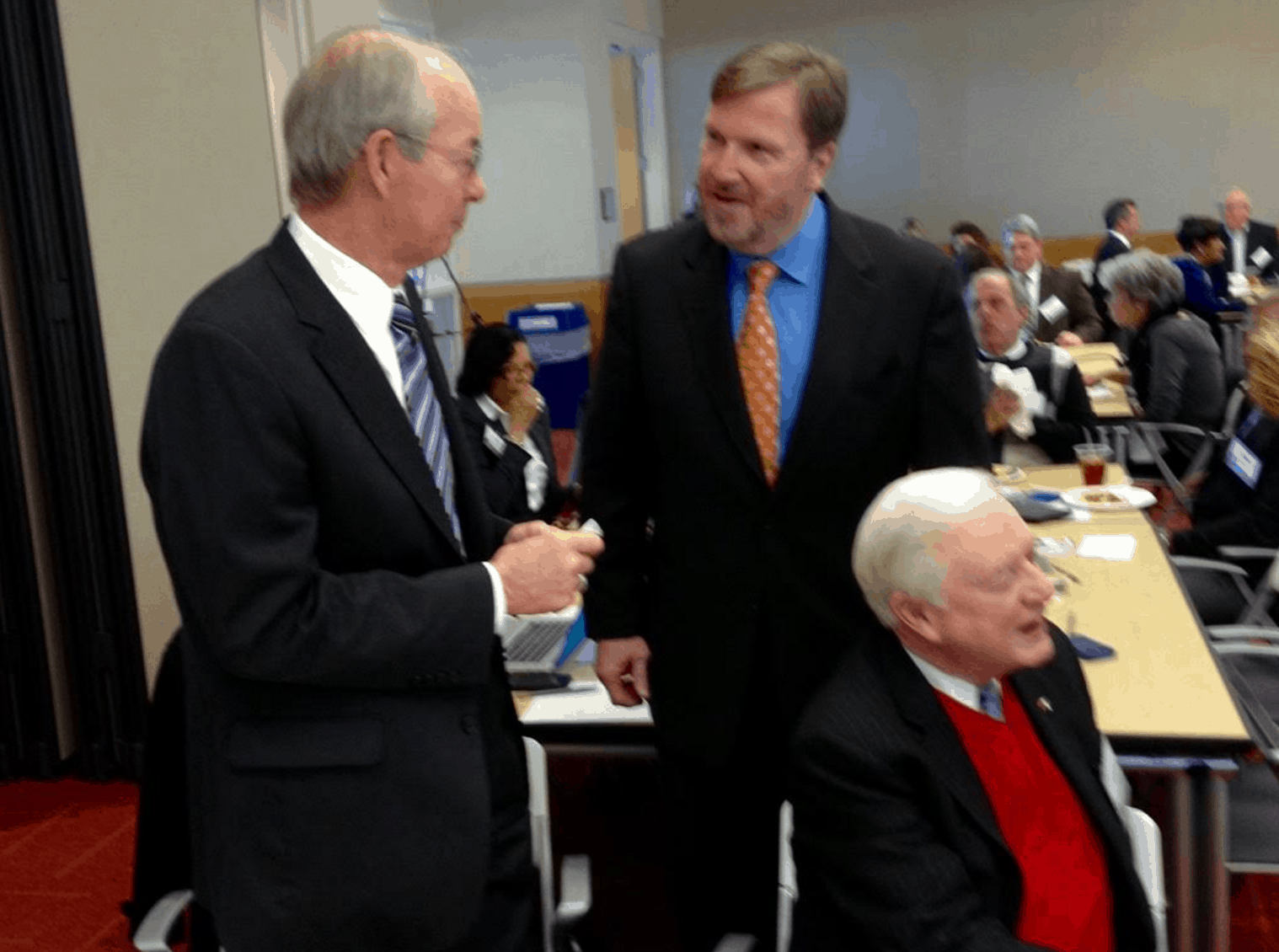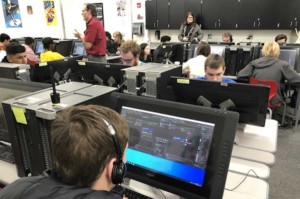Local Work Done With Such Care that it Changes the World

There were no metal detectors at the front of the 75-year-old neo-classic high school. Adults and teens greeted each other at the door. It was the fall of 1999 on the upper east side of Manhattan, and I saw something I had never imagined–six schools in one building, each unique but with a sense of calm, support and intentionality.
The Julia Richman Education Complex (JREC) housed four high schools, an elementary school and a middle school for children with autism, as well as a health center and teacher development center. The architect of this high functioning assemblage was Ann Cook, who founded Urban Academy in 1986 with a focus on inquiry teaching where teachers “frame questions in a way which challenges students to examine often conflicting evidence, draw conclusions and support these conclusions in thoughtful discussions with others who, using the same evidence base, reach divergent conclusions.”
 JREC was the first and perhaps best example of replacing a failing high school with new co-located schools. Each of the schools engage students and valued authentic work. They are all unique but collaborate to make JREC a positive place for kids.
JREC was the first and perhaps best example of replacing a failing high school with new co-located schools. Each of the schools engage students and valued authentic work. They are all unique but collaborate to make JREC a positive place for kids.
In addition to making JREC work, Ann Cook was the driving force behind the New York Performance Standards Consortium, a network of 28 schools that share a performance assessment system.
Cook’s sustained work on a small-scale inspired thirty years of new school development and the proliferation of small learning communities movement–both of which lead to big improvements in national graduation rates. After a twenty year national detour, there is renewed interest in performance assessment; Cook’s school and Consortium inspired movement of Assessment for Learning.
Ann Cook’s work is an example of local work done with such great care that it is of national importance.
Chicago School Research
The Booth School of Economics may get more attention, but The University of Chicago may also be the best example of the positive impact of applied research in K-12 education. Created in 1990 by Tony Bryk, The University of Chicago Consortium on School Research is a federation of research groups that, through a partnership with Chicago Public Schools, conducted and reported on local research with such insight that it had a national impact.
Like Cook, I met Bryk on my 1999 learning journey. I was impressed with the unique research partnership Bryk constructed and, for the next five years, was amazed at the quality of the research his team produced. The studies were so well conducted and the insights so well reported that the CCSR work was not only beneficial to Chicago schools but to educators nationally.
CCSR research was conducted with a working theory of improvement tied to practical measures, “The key idea of working theory of improvement is that it is directly tied to practice and aims to help educators focus on and think more clearly about key facets of their organization and its
core processes,” said Bryk.
Some examples of groundbreaking studies include:
- the importance of relationships as a key resource for improvement. This was the work on relational trust and associated survey measures.
- Developing the concept of on-track and how to measure this based on student high school administrative records. These data are now contributing to substantial improvements in high school graduation rates.
- The five essential organizational supports and related measures which are now in use in many school districts.
- Curricular pacing and assessing authenticity of instruction based on assigned tasks and
student work products are also in this category. - Student mobility (before anyone else was really focussing on that concept) particularly its effects as a school level phenomenon.
- A grade retention analysis included a detailed the logic model which supported examination of both intended and unintended consequences.
Bryk described studies like these as “peering over the horizon”–seeing and engaging in systematic research on important phenomena that have not yet captured much attention in the field.
There’s a part two to the UCCSR story because Bryk left for Carnegie. Timothy Knowles joined the UChicago faculty and launched the Urban Education Institute, with the audacious goal of “creating knowledge to produce reliably excellent schooling for children growing up in urban America.”
Bryk’s work at UCCSR (and now at Carnegie Foundation) is another example of local work done with such care that it changed the world.
 It’s Not About the Machine, It’s About Heart
It’s Not About the Machine, It’s About Heart
If you’ve studied how to use technology to improve education, you’ve heard of Mark Edwards (right), superintendent of a small district north of Charlotte North Carolina. They were an early 1:1 district and launched a summer conference to share what they were learning. I visited in 2012 and spotted 10 things they were doing right.
“Schools with a sense of spirit thrive,” Edwards said, and conversely, “Tech plans will collapse without a strong cultural foundations.”
 I visited the Mooresville summer institute again in 2014 and learned about gateway projects with digital products and public presentations (that performance assessment stuff that Ann Cook taught us).
I visited the Mooresville summer institute again in 2014 and learned about gateway projects with digital products and public presentations (that performance assessment stuff that Ann Cook taught us).
“We know that this is the right direction to prepare our students for college, work and the future,” said Edwards. “Project teams have proven to be an academic powerhouse.”
Mark Edwards (pictured, right center, at a DigiLearn meeting with former Wyoming governor Jim Geringer, left, and former North Carolina governor Jim Hunt, right) is leaving Mooresville Graded School District and joining Discovery Education.
As recently discussed, there are two approaches to leading great schools–a common approach (I call that enterprise) and a portfolio approach where each school charts its own course. Mooresville Graded School District has been a leader in taking a systemic approach–common goals, a collaborative culture, and shared practices, tools and systems. This sort of unified approach usually feels top-down but superintendent Mark Edwards had developed a system of distributed leadership in Mooresville where teachers have a say and feel supported.
Distributed leadership, the subject of Edward’s most recent book, has been evident in the way the project proposal was crafted and presented. Edwards said, “We’re excited about the stretch goals and the impact they have on student knowledge and understanding.”
Edwards showed us that a unified approach could be approached in a way that respected teachers. In nine years as Mooresville’s superintendent, Mark showed us that local work done with great care can change the world.
For more, see:
- Get the Culture Right: The Most Important New School Factor
- 60 Day Whirlwind Reveals New Schools & Tools
- Feed My Starving Children: Community Comes Together for Global and Local Impact
Stay in-the-know with all things EdTech and innovations in learning by signing up to receive the weekly Smart Update. This post includes mentions of a Getting Smart partner. For a full list of partners, affiliate organizations and all other disclosures, please see our Partner page.







Scott Haines
Thanks for sharing this Tom. I truly believe that "schools with a sense of spirit thrive" is the key, regardless of the initiative that is being implemented! I think Margaret Mead also said it well with "Never doubt a small group of committed people can change the world. Indeed it is the only thing that ever has."
Scott
Replies
Tom Vander Ark
yes, the thousands of great schools I've visited all have this "sense of spirt." What's unusual about Mooresville is that it's a system with spirit.